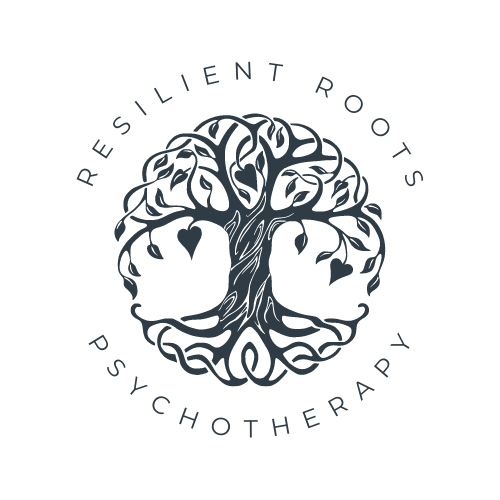Breaking the Ice: A Guide to Your First Therapy Session
Starting therapy can be an intimidating and vulnerable experience. For most people, the hardest part is making the phone call to schedule your first appointment. That said, it's normal to feel nervous or unsure about what to expect in your first therapy session. But the truth is, therapy is an incredibly valuable tool for improving your mental health and overall well-being. In this blog post, we'll discuss what you can expect in your first therapy session and beyond and how to prepare for it.
What to Expect
Your first therapy session will likely be a little different than subsequent sessions. Here's what you can expect:
Paperwork: Prior to your first session, I will ask you to fill out some paperwork, such as consent to treatment and practice policy forms, including forms that ask for basic information about you and your reasons for seeking therapy.
Getting to know you: I want to get to know and understand you better, so we will talk about your life, background, and experiences, such as your relationships/supports, hobbies, etc. I will also ask about your symptoms, such as feelings of anxiety or depression to better understand how I can help. This is also a good time to ask any questions you may have about the therapeutic process.
Goal-setting: We will work together to set goals for therapy. This can include short-term goals, such as reducing anxiety symptoms, as well as long-term goals, such as improving your self-esteem. We’ll use your goals as a guide to determine what is (or isn’t) working in therapy and periodically re-evaluate how things are going.
Treatment plan: Based on your goals, I will develop a treatment plan that outlines the specific techniques and approaches I will use to help you achieve them.
How to Prepare
Preparing for your first therapy session can help alleviate some of the anxiety or uncertainty you may be feeling. Here are some tips:
Be honest: Remember that your therapist is there to help you, so it's important to be honest and open about your thoughts and feelings. Nothing is off-limits in therapy, and there is no judgment or shame. In fact, I encourage my clients to share anything and everything they feel is important.
Bring questions: Don't be afraid to ask questions about the therapeutic process, my qualifications, or anything else that's on your mind.
Think about your goals: Before your session, take some time to reflect on what you hope to achieve through therapy. This can help you communicate your needs more effectively.
Be patient: Therapy is a process, and it may take some time to see progress. Be patient with yourself. It's important to remember that just as it took time for things to become the way they are, it will also take time for positive changes to take place.
What to Wear
It's natural to want to make a good impression on your therapist, but it's also important to feel comfortable and relaxed. Dress in a way that makes you feel confident and at ease. There's no need to dress up or wear anything fancy - therapy is a casual and comfortable environment where you can be yourself.
Confidentiality
Confidentiality is a crucial component of therapy. Therapists are legally obligated to keep everything you say in therapy confidential unless there's a risk of harm to yourself or others. This means you can feel safe and secure knowing that anything you share in therapy will remain private.
Environment
To make the most out of your online therapy session, it's essential to consider the environment you'll be in during the call. While online therapy offers the convenience of having your session from any location, it's important to ensure you're in a comfortable and private space. This will allow you to speak openly and freely without any distractions or interruptions.
To maximize your privacy, try to find a secure and quiet space where you won't be disturbed during your appointment. It's important to consider who might be around while you're on the video call and take steps to minimize any potential distractions. By creating a safe and private environment, you can fully engage in the therapeutic process and make meaningful progress toward your mental health goals.
The Power of Consistency
As previously stated, therapy is a process, and progress is often achieved through consistency. While it's tempting to expect immediate results after your first session, the reality is that real change takes time and effort. Showing up to your appointments, being honest, and following through on what we discuss are all important steps in achieving your goals.
Understanding Your Role in the Therapeutic Process
It's also important to understand that therapy is a collaborative process. I’m here to guide and support you, but ultimately, it's up to you to take ownership of your mental health and well-being. This means being an active participant in your therapy sessions and being willing to take action outside of your appointments to work toward those goals.
Ending the Session
At the end of your first therapy session, we will reflect on what we talked about and discuss the next steps in your treatment plan. We will also schedule your next appointment if you decide to continue therapy.
As you embark on your therapeutic journey, it's natural to feel a range of emotions, including apprehension and excitement. The first therapy session can be a pivotal moment in your mental health and well-being and shows courage, hope, and resilience.
By familiarizing yourself with what to expect and taking steps to prepare yourself mentally and emotionally, you can feel more empowered and confident as you begin your therapeutic journey. With patience, consistency, and an open mind, you can make meaningful progress toward your mental health goals and experience the transformative power of therapy.
With a clear understanding of what your first therapy session will entail, you can feel empowered to take the next step in your mental health journey. Don't wait any longer to prioritize your well-being - contact me today to schedule your first session with confidence.

